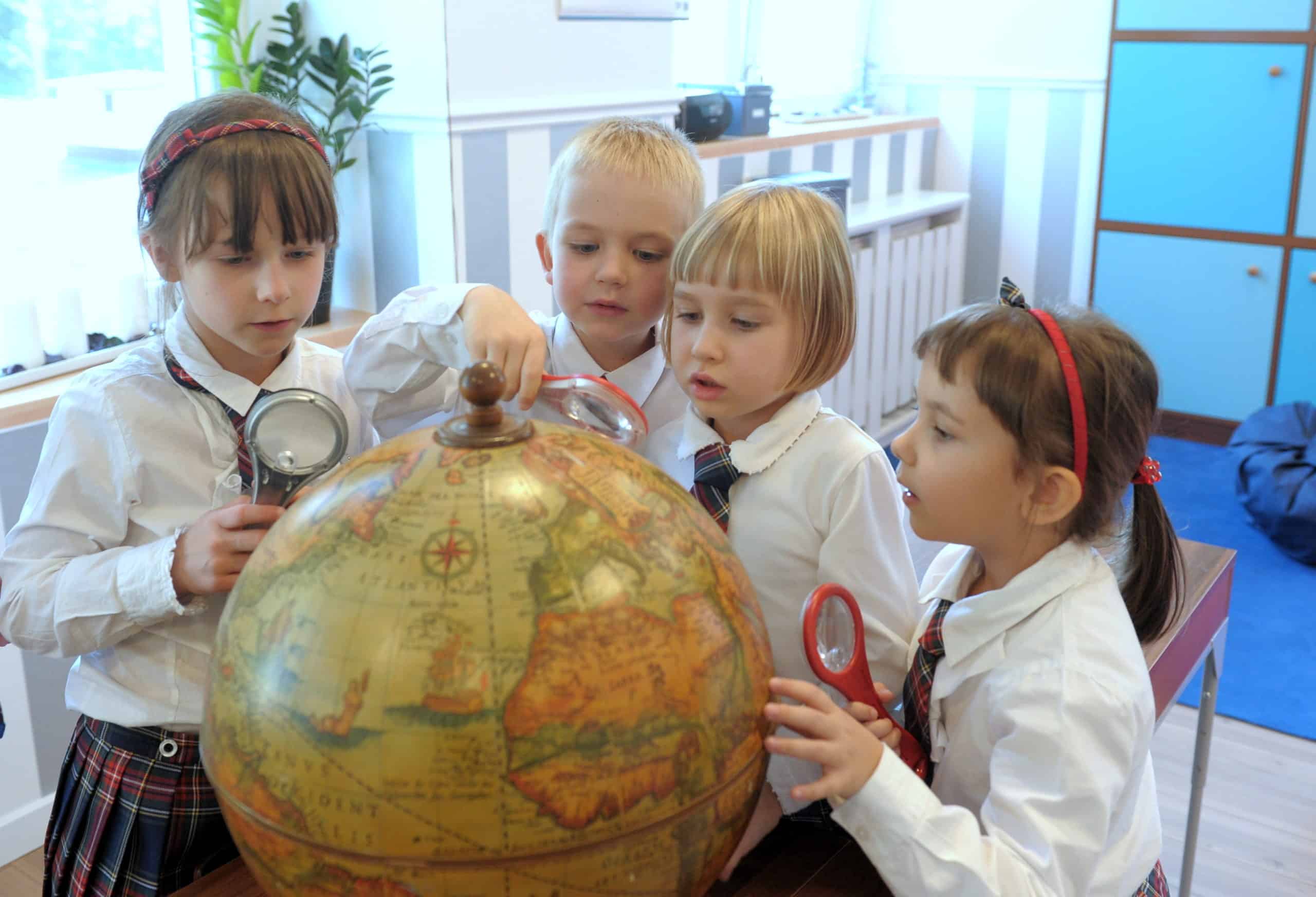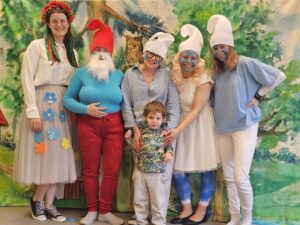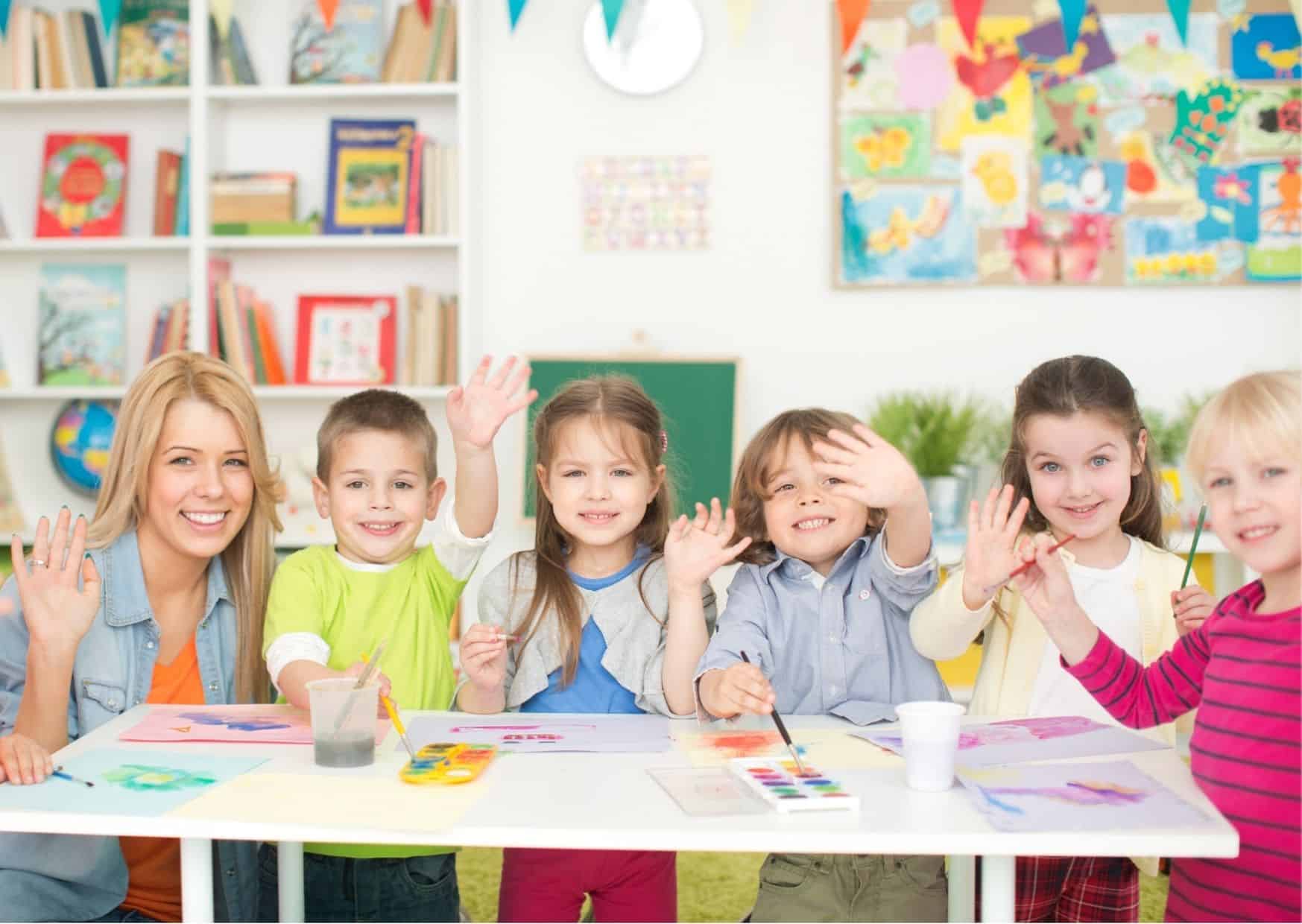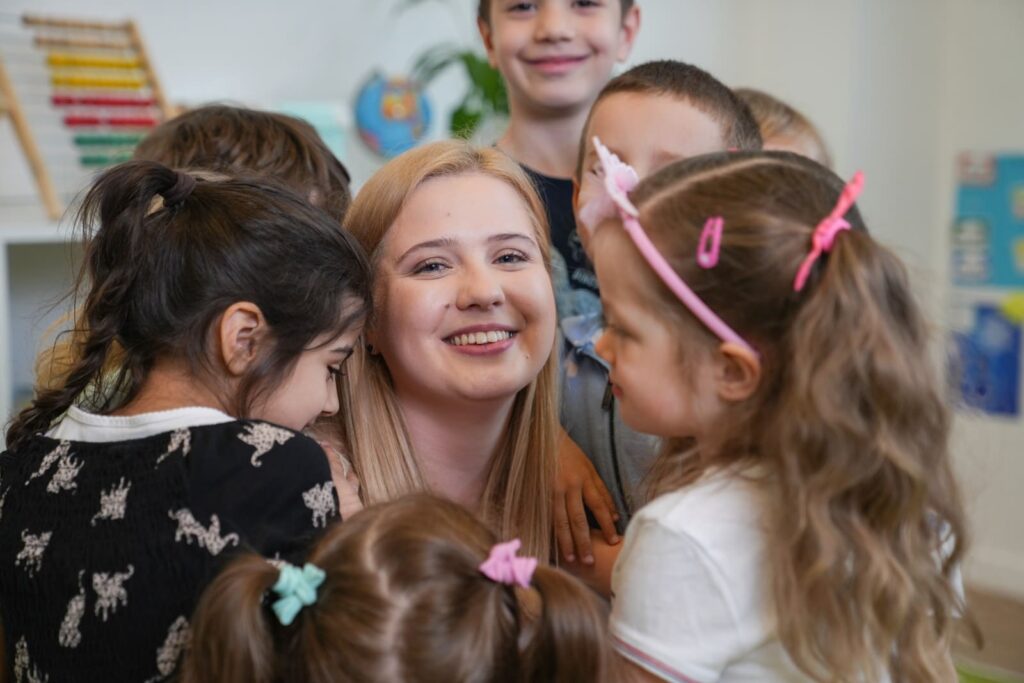Kindergarten at school or in kindergarten? What should parents pay attention to if they are faced with such a decision? If you are looking for an answer to this question - read on.
These articles will also interest you:
- Homemade sweets
- Linguistic immersion - what is it?
- How to stimulate children's curiosity?
- Do the children adopt their parents' behavior?
- Positive discipline - what is it and what to look for?
Learning through play
First of all, it should be noted that both kindergarten and kindergarten follow the same core curriculum. However, it is worth paying attention to the specificity of kindergarten, which favors the fact that educational activities (shaping linguistic, mathematical, natural and artistic competences) are primarily in the form of didactic games. They activate children, arouse their curiosity about the world, and motivate them to act. Contrary to popular belief that "play is just fun" - it is the most effective and the best way to learn. It allows children to acquire new knowledge and skills in an accessible, natural and attractive way.
Teaching program
Kindergarten in school or kindergarten? Another important argument to consider is the extracurricular activities program. In kindergartens - especially non-public ones it is definitely more varied. Children have the opportunity to participate in rhythmics, gymnastics, ballet, chess classes, as well as trips, meetings and projects that not only make education more attractive, but above all allow them to discover talents and comprehensive development.
Bilingual Education
Preschool kindergarten is a definite advantage bilingual educationwhich is currently implemented in most private institutions. Children are immersed in English, which, on a par with Polish, accompanies every activity: meals, walks, games and rest. In addition, the children participate in educational activities every day, using the English language.
An environment conducive to development
Continuing kindergarten in kindergarten is leaving the child in a friendly, safe, familiar environment, under the care of their favorite teacherswho know the child very well are aware of their abilities, competences and possibilities. Thanks to this, they can more effectively support them in the process of reaching school maturity. Focus on developing competences and skills that guarantee future school success, i.e. independence, efficiency in communicating your needs, the ability to express emotions, readiness to find yourself in new situations, coping with failure and evaluation.
Time scheduling
Before making a decision you should consider organizational aspect. Kindergartens, especially non-public ones, also work during summer holidays and school-free days - and schools do not. It is worth being aware that when deciding on kindergarten, we must have an idea how we will organize the child's care for about 80 days a year.
- see also | Nanny or kindergarten - parents' dilemmas
It is equally important that how much time and in what form the child will spend at school or in kindergarten. Kindergarten classes last 3-4 hours. The rest of the time the children spend in the school common room. Therefore, it is worth taking a closer look at its organization and the way it functions.
A balanced diet and outdoor activity
In the case of kindergarten, nothing will change. Kindergarten kindergarten life goes on in a fixed rhythm known from previous years, with time for fun, learning, but also for meals - the preparation of which you do not have to worry about. Preschoolers, apart from lunch (which you can also buy at school), eat breakfast and afternoon tea in kindergarten - healthy and balanced meals.
Additionally they spend a lot of time playing outdoors every day - which is not always allowed by the organization of the school club.
Kindergarten at school or kindergarten - facts and myths
Many parents believe that it is easier for a child to learn thanks to the fact that the setting changes to school. The truth, however, is quite different.
The determinant of school maturity is not the school bench, but a set of psychophysical features of a childwhich were formed in the first years of his life and enable him to adapt to school.
There is also the statement that 6-year-olds who go to school are more motivated to learn than pre-school ones. However, practice shows that six-year-old children - regardless of whether they are in the pre-school or school environment - are naturally curious about the world and internally motivated to acquire new skills. They derive natural joy and satisfaction from the development and opportunities they have been given.
Kindergarten in school or kindergarten? Summary
Are you wondering what to choose? Kindergarten in school or kindergarten? The choice is not easy, so choose what is best for your child. What will better suit his and your needs, family organization and logistics. If in doubt, consult the preschool teacher's tutor. It would also be good if the child himself could choose the option that best suits him. Above all, however, it is worth trusting your intuition. At last you are the expert on your child. You know them and understand them like no one else.
The truth is that if you make a decision in harmony with yourself, then no matter what it is, it will turn out to be a good choice. Remember about a positive attitude, because it will also affect your child. There is nothing better than having fun together while waiting for a kindergarten adventure.
Author of the publication: Joanna Goc-Matyskiel




